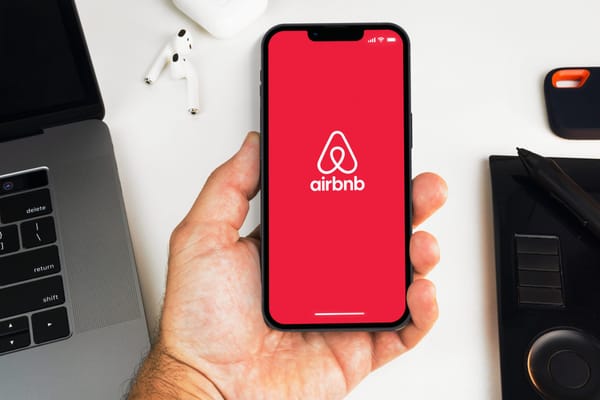4 Essential Rules of Buying Vacation Rental Properties

If you’ve ever dreamed of owning a property where you can escape to paradise, or if you’ve been eyeing an investment opportunity that offers both personal enjoyment and financial rewards, a vacation rental property might be just what you’re looking for. The concept seems simple: buy a property in a desirable location, rent it out to vacationers, and enjoy the benefits of rental income.
But before you take the leap and buy your first vacation rental investment property, it’s important to know that buying a vacation rental isn’t quite the same as purchasing a typical buy-to-let property. There are unique factors to consider, from choosing the right location to ensuring your property meets all the safety standards. It’s not just about finding a beautiful spot; you need to make smart decisions to maximize your return on investment while providing a memorable experience for your guests.
Whether you’re new to the world of real estate investing or looking to add another gem to your portfolio, understanding the nuances of vacation rental properties can set you up for success when financing real estate investments.
In this guide, we’ll walk you through four essential rules that experts swear by when it comes to buying the perfect vacation rental property. From picking the ideal location to ensuring your property is guest-ready, these tips will help you make informed decisions and avoid common pitfalls.If

Why Vacation Rentals?
It’s easy to see why property owners choose to invest in short-term rentals rather than typical buy-to-let properties. Renting out your property on a short-term basis can yield higher profits than long-term accommodations. In addition to potential monthly income, landlords who own vacation rentals are able to claim a greater amount of tax relief against their mortgage interest than those who have invested in buy-to-let.
The benefits are more than just financial. To be classed as a short-term rental in the UK, for example, your property needs to be available to book for just 210 days per annum. This leaves a good portion of the year when you can holiday there yourself!

Decide Whether Buying Vacation Rental Property Is Right for You
Tax benefits and extra income may sound too good to refuse but every investment comes with risks and rewards. Before you jump into the vacation rental market, it’s crucial to assess if this investment aligns with your financial goals, lifestyle, and expectations. Here are some key considerations to help you determine if buying a vacation rental property is the right move for you:
1. Assess Your Financial Readiness

Investment vs. Expenses
Owning a vacation rental property can be profitable, but it also comes with its share of costs. Beyond the initial purchase price, you’ll need to budget for ongoing expenses such as property management fees, maintenance, utilities, and insurance. Additionally, consider the potential for vacancy periods and fluctuating income. You may also wish to have a rental property that’s far from your primary residence and need to factor in a rental property management company. Make sure you have a solid financial cushion to cover these costs and handle any unexpected expenses.
Return on Investment (ROI)
Calculate the full potential income and ROI by comparing your estimated rental income with your overall investment. Research comparable properties in your desired location to gauge what you can reasonably expect in terms of nightly rates and occupancy rates. A positive ROI will depend on how well you manage the property and how appealing it is to guests.
2. Consider Your Lifestyle and Availability
Time Commitment
Running a vacation rental isn’t a “set it and forget it” type of investment. It requires time for managing bookings, coordinating cleaning, and handling guest issues. Think about whether you have the time to handle these responsibilities or if you’re willing to invest in professional property management services.
Work-Life Balance

If the idea of managing a property remotely or dealing with guests constantly feels overwhelming, a vacation rental might not be the best fit.
IGMS can help ensure you beat the overwhelm by streamlining your vacation rental management and automating the day to day tasks so they don’t pile up.
3. Evaluate the Risks and Rewards

Market Risks
Like any investment, vacation rentals come with risks. Market demand can vary based on seasonality, economic conditions, and local events. Research the stability and trends of the vacation rental market in your chosen location to understand potential risks.
Regulatory Considerations
Different locations have varying regulations regarding vacation rentals. These can include zoning laws, rental caps, or licensing requirements. Ensure you’re familiar with and compliant with local regulations to avoid legal issues and fines.
By carefully weighing these factors, you can decide if a vacation rental property is a smart choice for you.
So, how do you find the ideal property? Here are four expert tips from the team at Property Solvers:
1. Choose Your Location Carefully
The main deciding factor for any traveler seeking accommodation is location. Firstly, you need to consider the country in which you plan to purchase your vacation home.

Depending on the country, remember that there may be differences in the real estate process, including the handling of mortgages and loans, business and property taxes, planning permission, insurance, and other matters. Even within the same country, there will be places with lower and greater rental demand and even within the same city.
Know Your Audience
Next, think about your audience. Are they sun-seekers and surfers? In the UK, for instance, a beach house on the south coast is ideal for this demographic. Cornwall is the most popular spot in the country for sunny vacation homes with family-friendly attractions.
If you’re planning to attract history buffs and fans of beautiful architecture, a historic home in South Carolina might yield more.

Think about amenities
You should also consider your investment property’s proximity to amenities. Travelers are more attracted to locations that are not too far from shops and bars and have good transport links. Those on beach vacations won’t want to walk too far to see some sand.
A room with a view?

The position of the property and the views it offers to your guests can also make a difference. Seascapes, rolling hills or an elegant city skyline will add far greater value to your holiday let than most other elements. Look for an investment property with a terrace, balcony or similar features to set yourself apart from the competition.
2. Consider Access, and Health and Safety Measures

Accessibility
You need to make sure that your vacation rental is friendly to people with accessibility needs. After all, narrowing your audience will make your vacation property less sought-after and may attract complaints.
Ramps, handrails, and easy-to-use bathroom features will improve the comfort of your vacation rental property for older guests or individuals with access needs. Generally, this demographic prefers single-story properties – so looking into bungalows could be a wise move.
Health and Safety
Health and safety is an extremely important aspect and as a property owner, it’s your responsibility to make sure everything is up to par. You’ll need to make sure that all appliances are regularly checked and that there is no danger of a guest injuring themself. Ensure all structural elements adhere to official building regulations.
Install and maintain fire alarms and carbon monoxide sensors on the property. Keep all security hardware up to date and sufficiently sturdy. Once you’ve addressed all of these issues, your vacation rental property will not only be safer but also much easier to insure!
Family and Pet-Friendly Features

To appeal to a wider audience consider making your short-term rental child and pet-friendly too. Why not consider installing windows with restricted opening distances, optional baby gates, handrails, and baby or pet-friendly furniture that is easy to clean?
Sofas, beds, and other furnishings that sit entirely on the floor instead of being raised on legs can also prevent kids or animals from getting trapped or leaving items hidden.
3. Consider the Location of Your Vacation Rental Property in Relation to Your Primary Residence
How far should your vacation rental be from your own home? At first glance, it may seem easier to stay right next door or even on-site, so you can easily handle the cleaning and maintenance and assist if there is any problem.
However, this might put off some potential renters as they may feel as though they are being watched. It may also cause you to feel stressed and as if you can never truly get away from your work.
Many property owners find it a better option to buy vacation rental property far away from their primary residence and handle it remotely, hiring professional cleaners, maintenance specialists and using a property management company.

4. Think Business
This isn’t the same as buying a vacation home and you need to treat it with the same attitude you would any other business investment.
Do Your Research
Before you choose your vacation rental, you should first do a little research into home prices in the surrounding area. Are there other short-term rentals nearby? If so, how much do they charge? This should help you to estimate the price per night for your property.
There are peak times and quiet times for vacation rental properties. Learning about seasonality in your area will help you to calculate annual and monthly rental income projections for your rental property.
Financial Aspects

You should consider the best and worst-case scenarios in terms of rental income and expenditure. Calculate how long it might take for your business to recover if anything unexpected happens.
Once you’ve got a clear idea of how your vacation rentals will function as a business, you’ll be in a good position to start looking into short-term rental mortgages. Remember to consider your debt-to-income ratio and research mortgage interest rates.
Final Thoughts
By considering your location, your audience, accessibility, safety, ease of management, market trends, and the potential of the business as a whole, you should be able to set yourself up as a successful vacation rental owner.
If you’re looking for further tips on buying and selling houses, visit the Property Solvers website and get in touch.
Source: Ruban Selvanayagam is co-founder of Property Solvers, a sell-house fast company and 28-day estate agency based in the UK, and has been a private rented sector landlord for over 13 years.






